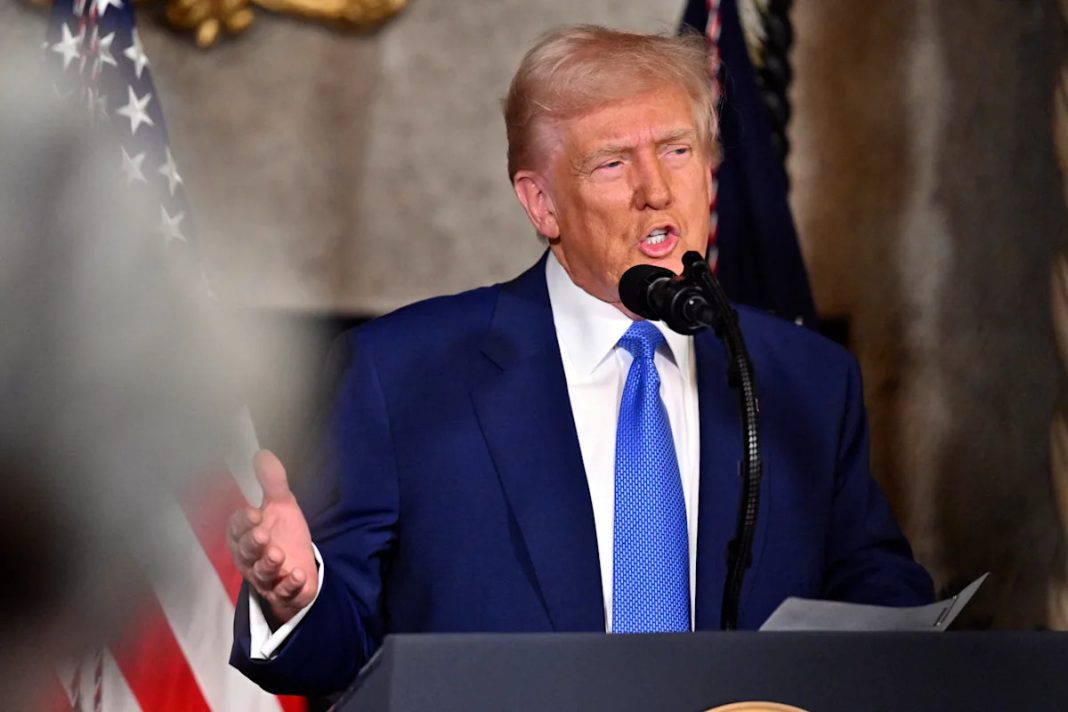President Donald Trump is ordering his health department to crack down on direct-to-consumer pharmaceutical advertising in a new memorandum signed Tuesday.
The push, which aligns with past pledges from Health and Human Services Secretary Robert F. Kennedy Jr., aims to boost scrutiny of social media companies and influencers who promote medicines without proper disclosures, according to a senior administration official granted anonymity to discuss the effort.
The Food and Drug Administration is also issuing warning letters to drugmakers putting them on notice that direct-to-consumer ads must adhere to existing regulations. Those rules state that ads cannot create misleading impressions of a drug and must present a fair balance of information about their risks and benefits.
“Today, we will be sending out approximately 100 cease and desist enforcement letters and thousands of warning letters warning companies that we plan to enforce these regulations that are currently on the books,” the senior administration official said on a press call.
A spokesman for PhRMA, the brand medicine trade lobbying group, said drugmakers in the brand medicine trade lobby are “committed to responsible advertising.”
“Truthful and non-misleading DTC advertising is protected under the First Amendment and has documented evidence of advancing patient awareness and engagement,” Alex Schriver said in a statement.
Under current regulations, drug advertisements still must disclose a drug’s most important risks in spoken form — a disclosure known as a major statement.
But the administration is also planning to take regulatory action to change what is known as the adequate provision standard. That policy allows drugmakers to not include all of a drug’s risks in a broadcast advertisement, and instead tell consumers where they can find more information about its prescribing information on a source such as a website.
“We plan to take regulatory action to change that loophole and to close it,” the senior administration official said. “We think by doing all of these things that this will have a significant impact on direct-to-consumer pharmaceutical ads, and that we’ll get back to the basic principles that were outlined in the original regulations.”
The memorandum states: “The FDA has historically stipulated that a manufacturer, packer, or distributor must provide the public with materially complete information that fairly balances both the benefits and the risks of the drug. Over time, however, the FDA’s requirements have permitted drug companies to include less information, particularly in broadcast advertising, and drug manufacturer advertising has skyrocketed in recent decades.”
Kennedy has said he wants to tackle what he describes as an overmedicalization of American children. Research shows that direct-to-consumer advertising increases the number of drugs prescribed by doctors. If implemented, more stringent advertising rules could make it more difficult for drugmakers to market their medicines — potentially reducing the number of prescriptions being written.
“There is a concerning trend of overprescribing medications to children, often driven by conflicts of interest in medical research, regulation, and practice,” the Make America Healthy Again strategy released Tuesday states. “This has led to unnecessary treatments and long-term health risks.”
Lawmakers on both sides of the aisle have pressed the FDA in recent years to take enforcement action against pharmaceutical social media advertisements. The U.S. is one of two countries in the world — the other being New Zealand — where direct-to-consumer advertising is broadly permissible.
Direct-to-consumer ads “making product claims for disease treatment are only permitted in the United States and New Zealand, and the appeal and potency of DTC ads demand adequate FDA oversight,” Sen. Dick Durbin (D-Ill.) and former Sen. Mike Braun (R-Ind.) wrote in a letter to former FDA Commissioner Rob Califf last year. “Unfortunately, it appears there are gaping holes in FDA’s oversight of DTC promotions that are being exploited on social media at the expense of children and patients.”

